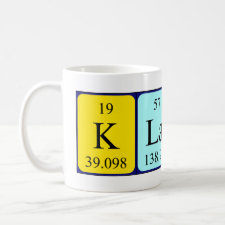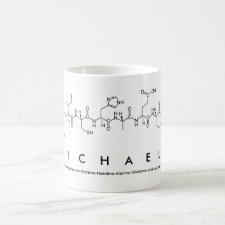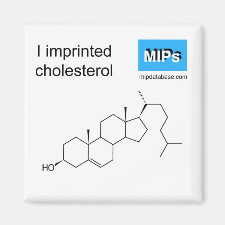
Authors: Boonpangrak S, Whitcombe MJ, Prachayasittikul V, Mosbach K, Ye L
Article Title: Preparation of molecularly imprinted polymers using nitroxide-mediated living radical polymerization.
Publication date: 2006
Journal: Biosensors and Bioelectronics
Volume: 22
Issue: (3)
Page numbers: 349-354.
DOI: 10.1016/j.bios.2006.04.014
Alternative URL: http://www.sciencedirect.com/science/article/B6TFC-4K1G55T-1/2/37f613d3a3237e74fe0036f0315d5c8f
Abstract: The use of molecularly imprinted polymers (MIPs) in chemical and bioanalytical applications has been gaining in interest in recent years. Compared to their biological receptor counterparts, MIPs are easy to prepare, have long shelf stability and can be used under a variety of harsh conditions. The majority of MIPs currently used are produced by traditional free radical polymerization. One drawback with the use of standard free radical initiators is that little control can be exerted over the chemical processes that form the final imprinted cavities. In this study we set out to investigate the application of controlled (living) free radical polymerization to the preparation of MIPs. This was exemplified by the synthesis of cholesterol-imprinted bulk polymers by nitroxide-mediated polymerization (NMP). A sacrificial covalent bond was employed to maintain imprinting fidelity at elevated temperature. Selective uptake of cholesterol from solutions in hexane was studied with imprinted polymers prepared under different conditions. The imprinted hydrolyzed MIP prepared by NMP displayed higher selective cholesterol binding than that prepared by a traditional radical polymerization
Template and target information: cholesterol
Author keywords: molecular imprinting, living radical polymerization, Nitroxide-mediated polymerization, cholesterol



Join the Society for Molecular Imprinting

New items RSS feed
Sign-up for e-mail updates:
Choose between receiving an occasional newsletter or more frequent e-mail alerts.
Click here to go to the sign-up page.
Is your name elemental or peptidic? Enter your name and find out by clicking either of the buttons below!
Other products you may like:
 MIPdatabase
MIPdatabase









